Steve Majkowski opened Rochester Sports Cards and Memorabilia six years ago. At the time it may have seemed like a gamble — a sports card store, in 2014? — but today business is so good that he’s buying his downtown Rochester building.
Sports cards are scorching. They’ve been trending upward for several years, but since the pandemic, they’ve exploded both in popularity and value. Chalk it up to a host of factors: nostalgia, financial prospects, promising young stars, a lack of competition for consumers’ entertainment dollars and disposable income during COVID-19. This mix of ingredients has whipped collectors into a frenzy, and business is booming.
“This year we’ll be doing twice the business that we had in even our most aggressive business plan for the year,” says Majkowski, who worked for Delphi and Dow before he opened his store, where he has display cases full of current and vintage cards and boxes of new product lining his walls and counter space. “We’ll do four times the business that we did in 2016.”
At Grand Slam Sports in Sterling Heights, “we’ve never been busier,” says owner Dave Rivetto.
Trading card industry leader Topps, which next year celebrates its 70th anniversary, has seen business skyrocket during the pandemic.
“It’s the perfect thing to do in your own home,” says Jeff Heckman, Topps’ global director of e-commerce, who says trading card collecting is well-suited to lockdown scenarios and social distancing. He mentions the ease of sharing collections on social media and the popularity of pack opening videos on YouTube as other contributors to the current craze.
“No live sports for awhile helped, too, and people kind of went back and rediscovered their old collections,” says Heckman. “They went into their attics and found things from the '70s, '80s and '90s that were collecting dust and reconnected with them. All those things have made the hobby be on fire.”

On fire, as in big money is at play. Last month, a LeBron James rookie sold at auction for $1.8 million, and earlier this month an unopened case of 1986-87 Fleer basketball cards — the year of Michael Jordan's rookie card — sold for $1.78 million. Over the weekend, meanwhile, a 2009 Mike Trout rookie sold for $3.9 million, setting a record by becoming the most expensive sports card ever sold at auction.
But that heat has made it too hot for some. As more money gets thrown around the hobby, card collecting no longer consists of 8-year-olds buying $1 packs of cards looking to collect their favorite player. Cards today are shiny, glossy, high-end collectible pieces of art, and come with the tease of limited edition autographs or pieces of memorabilia embedded inside them.
Gary Vaynerchuk, the self-promoting and widely influential entrepreneurial guru, has been touting sports cards as a major investment opportunity for more than a year. That has attracted a host of new clientele who treat sports cards like the stock market, buying and flipping product on the internet and creating shortages at big box retail outlets like Walmart and Target, causing prices to surge at hobby shops and online.
A current set of Topps baseball cards now sells for up to $6 a pack in hobby shops, and basketball cards — if you can even find them — might go for up to $18 a pack. A current set of Panini Illusions basketball cards sells for $750 a box; at six cards per pack and 14 packs per box, that’s almost $9 per card.
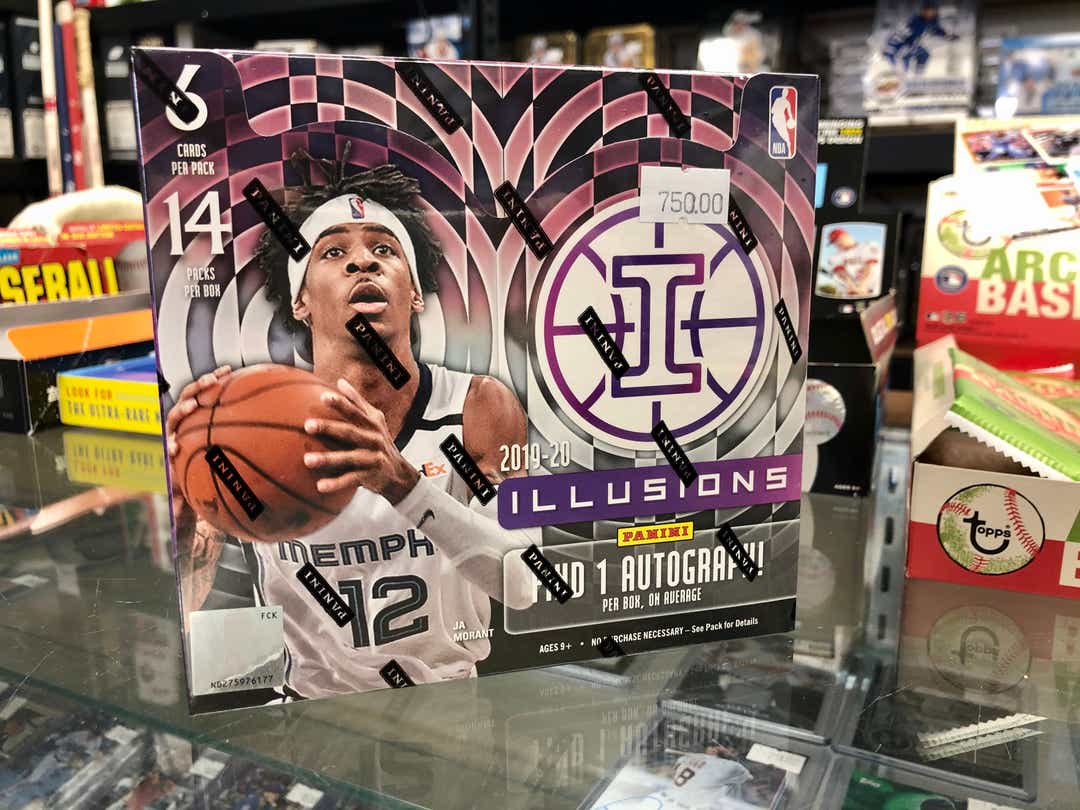
But there can be big values in that box. Pull an autographed card of New Orleans Pelicans rookie Zion Williamson that includes a piece of his jersey and you can flip it for $2,200. A rare one-of-five Zion green parallel card could fetch $2,500. And an acetate LeBron James from that same set might go for up to $20,000.
The big money moving through the industry right now “is so crazy, it’s stupid,” says Grand Slam’s Rivetto. But he’s not complaining: so far this year, his store has already surpassed 2019’s sales, and he recently sold an autographed Zion Williamson National Treasures card for $60,000. “And I couldn’t sell it fast enough,” he says.
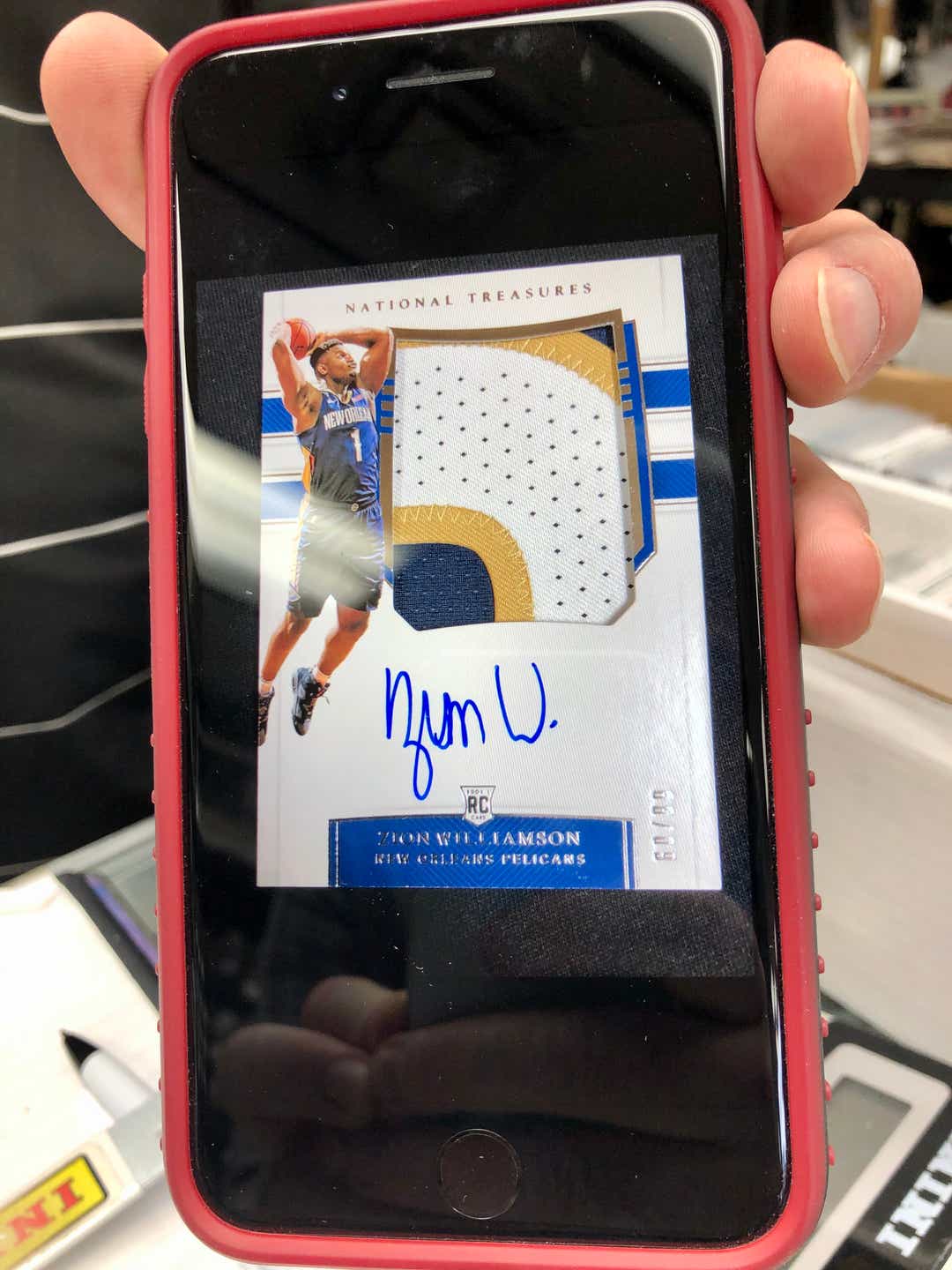
Rivetto, like others in the industry, knows all too well the ups and downs of the baseball card biz.
Baseball cards have been around for more than a century, and have always been a way for fans to own a piece of their favorite players. Every collector has heard the story of someone's precious collection getting tossed in the garbage, and how if only their mom hadn't cleared out their bedroom, they too would have had that famous Honus Wagner card, the one that wound up selling for $3.12 million in 2016.
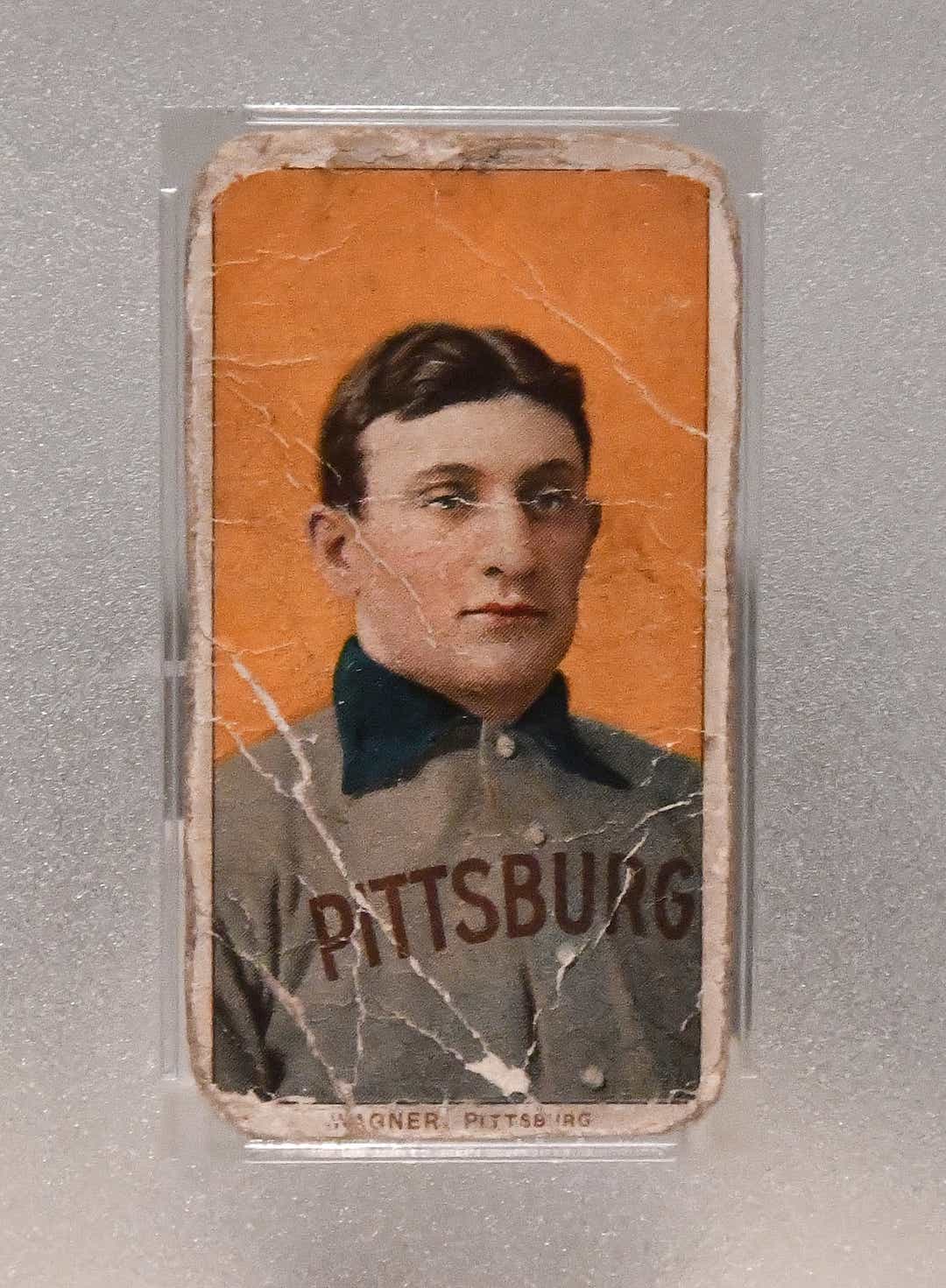
Hobby shops were abundant in the mid-1980s and early ‘90s, and kids collected cards thinking they were squirreling away money for college or for a down payment on their first home. But cards in that era were so grossly overproduced that overnight they essentially became worthless, and when the bubble burst on the industry in the mid-'90s, it put most card shops out of business.
Having been through it before, card store owners know the current boom can’t last forever.
“Someday in the future, when there are other financial distractions for people and when the coronavirus has ended, I'm sure a lot of the money that's being earmarked for collectibles will take somewhat of a hit,” says Mike Lester, owner of Time Travelers Comics, Cards and Collectibles in Berkley. But in the meantime, “I think you're going to see, especially for the next six months, it's gonna be crazy.”
Still, not everyone is in it strictly for the money.
Brad Galli, sports director at WXYZ-TV (Channel 7), has loved collecting cards since he was trading them on the playground with his classmates during recess in elementary school.
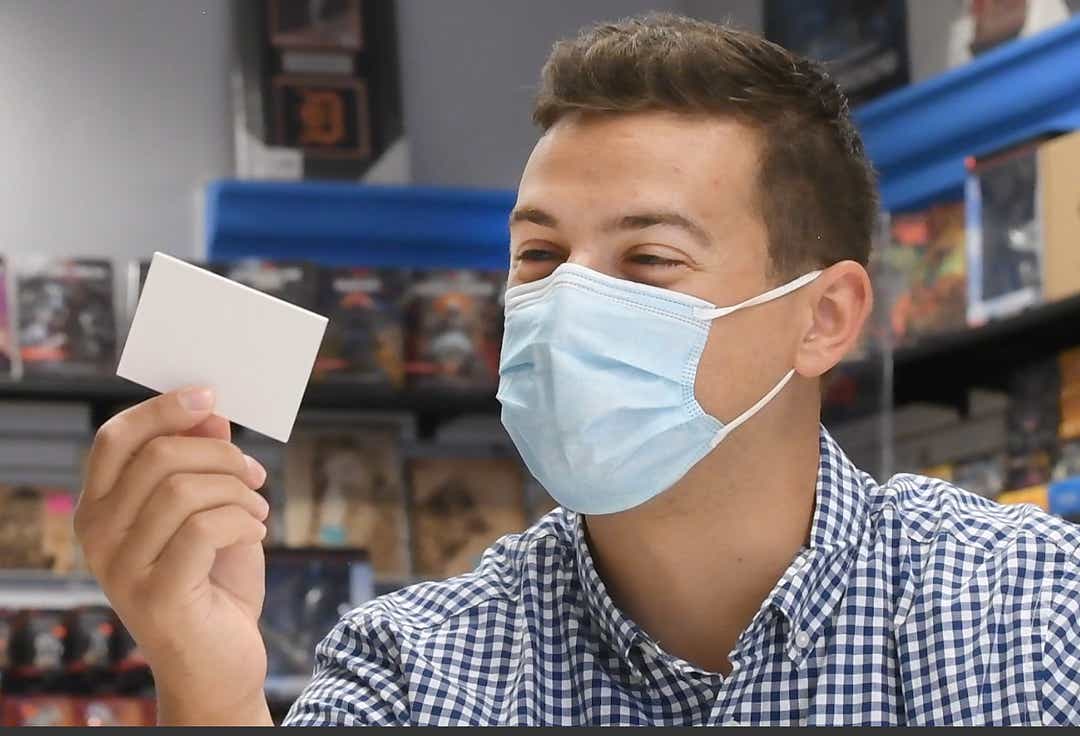
In high school, as a reward for the one time he got straight As, he got a box of hockey cards as a reward. From that box he pulled a card that had pieces of jerseys from the Red Wings' Gordie Howe, Steve Yzerman and Henrik Zetterberg, “and I will never get rid of that,” Galli says.
Collecting sports cards — he collects “Star Wars” cards as well as sets from other film franchises he loves — is a way for him to take his fandom to the next level.
“As a kid I always wanted to be a step closer to the action, and this, I feel, brings you that step closer,” says Galli. “I don't gamble at the casino. I don't gamble on sports. I don't drink, I don't smoke. So this, for me, it's almost like a minor high.”
While in the eyes of some there is a childish aspect to collecting, “it’s who I am,” says Galli, who last month pulled a valuable Tom Holland autograph out of a pack of "Avengers: Endgame" cards. “I’m not ashamed of it, I’m proud of it being a part of who I am.”
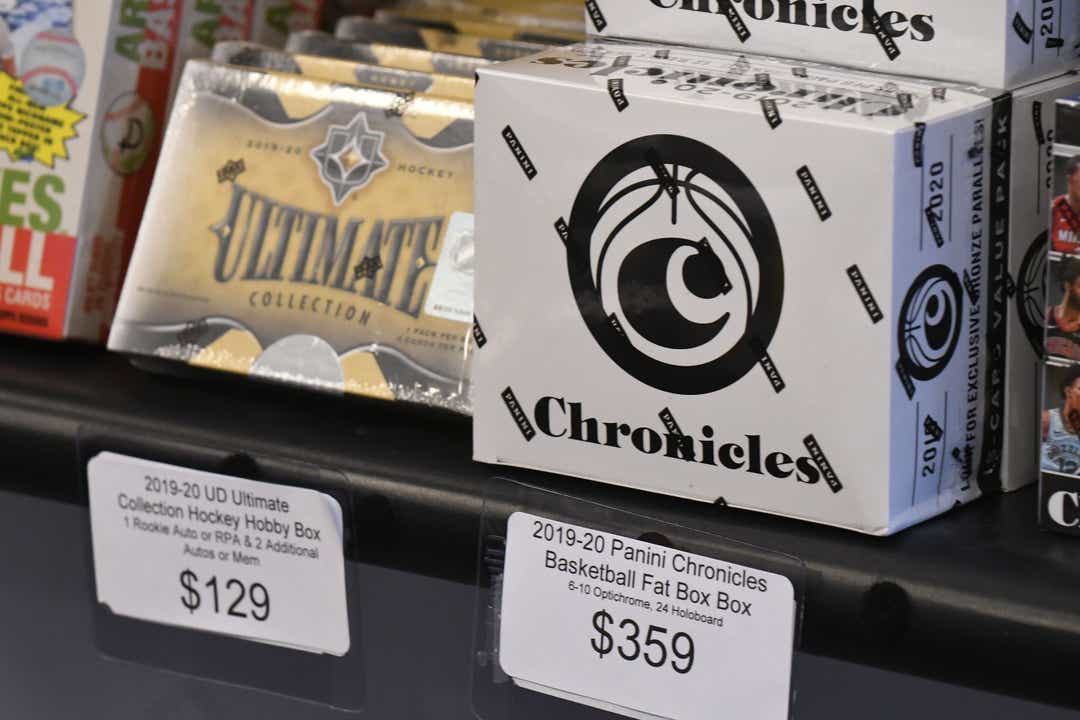
That collector’s gene is an essential component of the trading card industry, and it’s what makes people buy and chase boxes of outrageously expensive cards. It’s the thrill of the rip, and the mystery of never knowing what treasures may be hidden inside that next pack of cards.
“My son, he's 14, he said to me the other day, ‘all you do is sell cardboard,’” says Rivetto. “And I'm like, ‘yeah, but it's expensive cardboard.’”
For now, at least.
agraham@detroitnews.com
Twitter: @grahamorama
"again" - Google News
August 25, 2020 at 10:08AM
https://ift.tt/2Qm5VA5
Back on Topps: Sports cards, once again, are big business - The Detroit News
"again" - Google News
https://ift.tt/2YsuQr6
https://ift.tt/2KUD1V2
Bagikan Berita Ini














0 Response to "Back on Topps: Sports cards, once again, are big business - The Detroit News"
Post a Comment